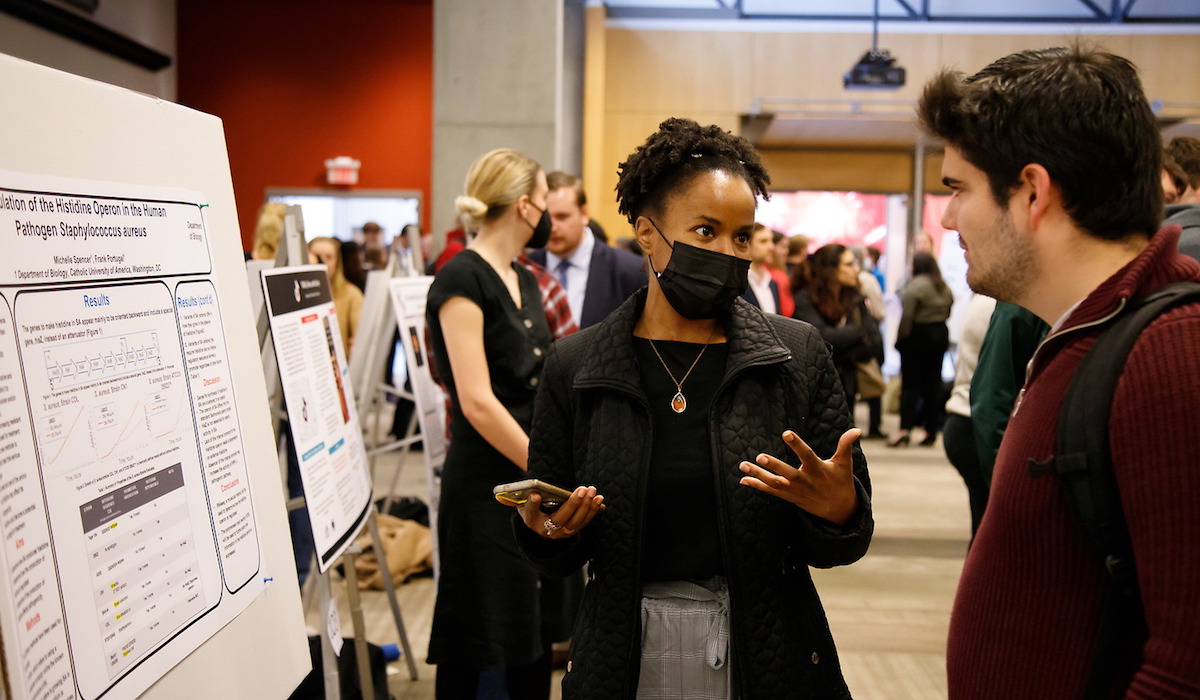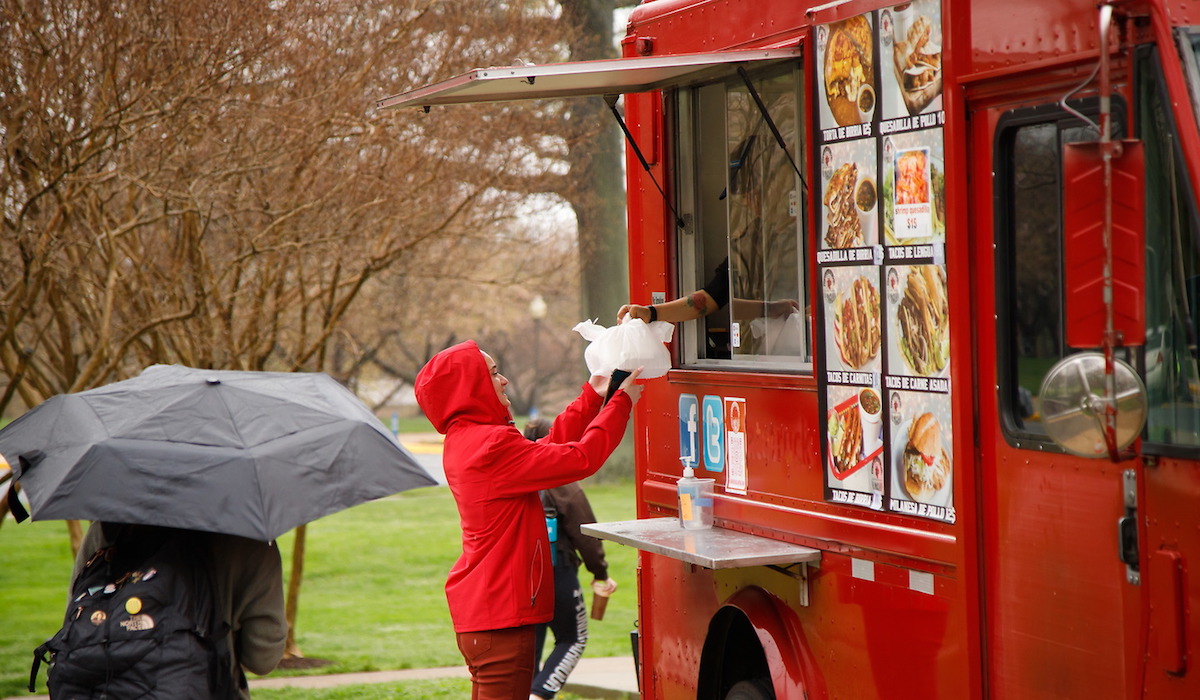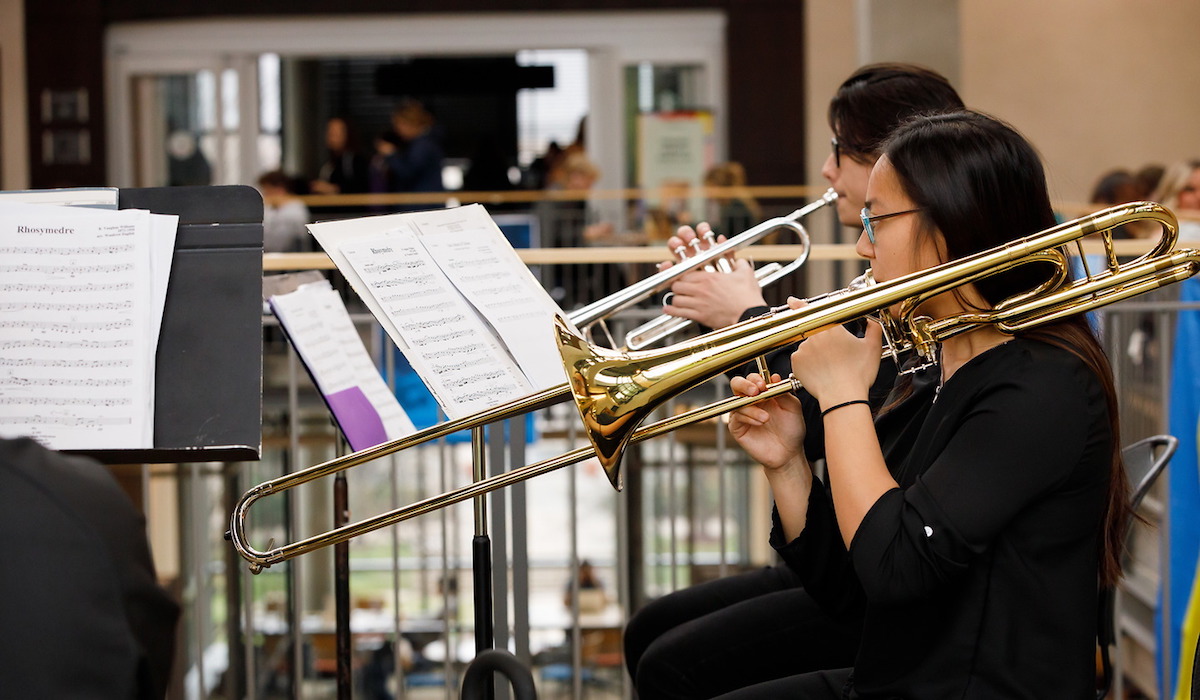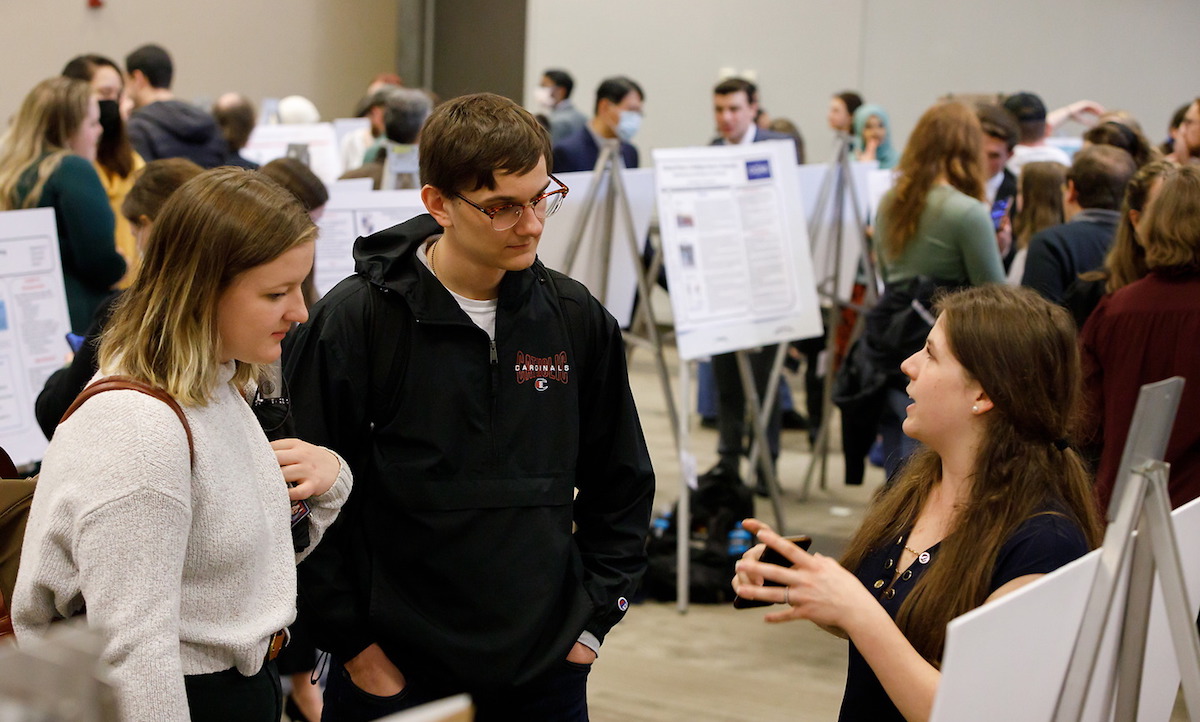

The first University Research Day held in-person since 2019 was a resounding success, based on the crowds at the Pryzbyla Center and at presentations across campus throughout the day.
With 184 presentations to choose from, plus live performances from students from the Benjamin T. Rome School of Music, Drama, and Art, and six food trucks, there was a lot to see.
The day kicked off with a welcome and short presentation by Provost Aaron Dominguez, followed by a keynote address. Huei Bui, assistant professor of electrical engineering and computer science, and principal investigator of the Advanced Computing Laboratory, demystified DNA computing in “Progress in Bringing DNA Computers to Life.”
 Students and faculty then fanned out across campus to listen to oral presentations in the morning before gathering at the Pryzbyla Center for lunch from the on-campus food trucks, and music and drama performances.
Students and faculty then fanned out across campus to listen to oral presentations in the morning before gathering at the Pryzbyla Center for lunch from the on-campus food trucks, and music and drama performances.
Emma Hanks, a sophomore music major from Brooklyn, stopped to talk for a few minutes before she and fellow students performed a preview of the musical comedy, “The Wedding Singer,” a CenterStage Theatre Company production that will open April 28 at the Pryzbyla Center.
When asked about participating in University Research Day, she said, “I’m really excited about today. A preview is always exciting, plus getting academic attention as an arts major” is meaningful. She noted that her major includes rigorous academic coursework in addition to performances.
Nadja Tomaszewski, also a sophomore theater major, added that University Research Day is a day of exploration. “This is a place to try, to explore. Today we are all artists, to bring something big and beautiful to the world.”
As their performance wrapped up, students poured into the Pryzbyla Center Great Room where more than 100 poster presentations covering a wide range of research were set up. Students and faculty explained their work and answered questions in the crowded room for more than two hours. 
Hadeel Alqasiri, a doctoral candidate in engineering, discussed the app she is developing that calibrates microscopes through a step-by-step process, while down the row from her, Sydney Blasi, a senior psychology student, discussed her work assessing why “emerging adults” take risks.
Engineering student Gustavo Cestero and his colleagues held up a laptop to engage passers-by with facial recognition software the team had developed that works with face masks and across diverse populations.
Cestero said the software application is for attendance taking. “When a person walks in and looks at the webcam, their information is integrated into an attendance sheet. The name and time of arrival are fed into a CSV file that can be downloaded.”
A hallmark of the research was practical application. Social work Ph.D. candidate Katharine Carter analyzed a national database of more than 6,500 students, finding correlations between depression and anxiety in adolescents and three academic markers: completing assignments, GPA, and focus in school.
 “We can use academic behavior to predict mental health problems. I hope that this informs policies and programs so students are flagged for mental health services,” she said.
“We can use academic behavior to predict mental health problems. I hope that this informs policies and programs so students are flagged for mental health services,” she said.
Kat Kaderabek and Melina Skinner, seniors studying architecture, walked through an adaptive reuse project they designed, the Shaw Health Oasis Urban Rest Stop (SHOURS). A community survey identified a need for services for persons experiencing homelessness. Their innovative building design includes showers, restrooms, a clothing boutique, and more services — all in an environmentally sustainable, net-positive building. The design has been submitted for the American Institute of Architects COTE Top 10 for Students competition.
The day concluded with an awards ceremony in Heritage Hall for the top poster and oral presentations for undergraduates and master’s and doctoral candidates.
Dominguez also announced three special awards.
George Nehmetallah, assistant professor of electrical and computer science engineering, received the Provost Award for Achievement in Research. Joel Alicea, assistant professor of law and director of the Project on Constitutional Originalism and the Catholic Intellectual Tradition, received the Young Faculty Scholar’s Award.
The Phi Beta Kappa First Experience Essay Prize went to Sarah Abood, a sophomore nursing student in the Honors Program, for her essay, “Child Language Development: The Effects of Low Socioeconomic Status and Interventions that Narrow the Gap.”
Her essay will be published in the undergraduate research journal Inventio, which was one of several campus, research-related organizations that had display tables at the Pryzbyla Center for University Research Day.
Explore the University Research Day presentations online